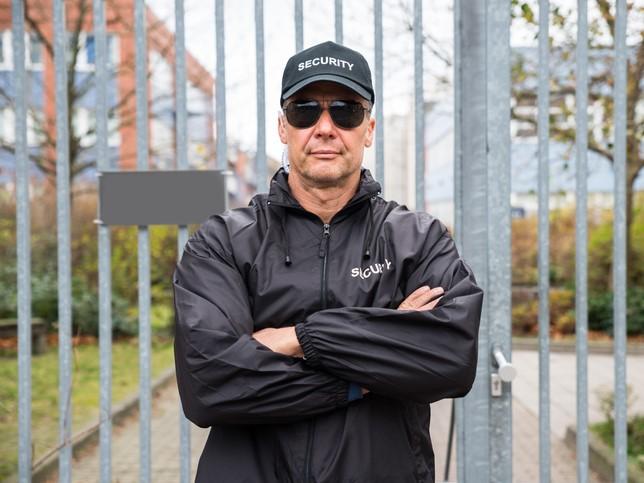When I was a studying at university, I never really viewed myself as disadvantaged but, in reality, that was the case. My parents did not have the financial means to support my education and as a result, I had to find work to fill the gap. Luckily, my brother had managed to get a successful business off the ground and he gave me a job on the night shift in his factory. This paid enough to cover my undergraduate degree expenses at University College, Dublin. I was doubly fortunate because I worked on a machine that manufactured computer packaging and more or less operated on its own. Therefore, I had enough time to do my studies while keeping a regular eye on the machine to make sure it did not get jammed.
On graduation, I was offered a place in the UK on an MSc at the LSE. Again, I didn’t have the financial means to support myself, and I managed to cover most of my fees through a bank loan. I covered my remaining tuition and living expenses through work in a pub and as a research assistant at the LSE. On this occasion, like many others, my studies suffered, as I had to devote too much time to earning a wage at the expense of time for studying. However, I did well enough to earn a scholarship for a doctorate at the University of Oxford and, years later, here I am as a business school dean.
- Social justice in, through and beyond higher education
- Rekindling passion for equality, diversity and inclusion work
- If we truly want a level playing field, we must focus on social capital
No surprise then, that helping students from disadvantaged backgrounds get through university is one of my key passions. Fundraising to generate bursaries to provide financial support for these students is a key part of the agenda. However, finance is only part of what is required as support; human and social capital are also very necessary. And this is where I was very fortunate.
As mentioned, I never felt disadvantaged because I had parents who encouraged me to do well at school and provided a conducive home environment for homework. Many members of our wider family had been to university, and I lived in an area where a large proportion of students went on to university. I had a social network comprised of role models, mentors and business contacts that I could draw on for study projects at university. In sum, even though I had little financial capital, I had an abundance of the social capital that one needs to succeed at university. But we know that for many students this is often not the case.
So, when our team at Trinity decided to create a programme to enable more students from disadvantaged backgrounds to study at our business school, we knew it was necessary to address both financial and social capital deficiencies. Tuition assistance to develop human capital was fundamental, too.
We learned that social capital deficiencies create barriers even before students consider their options after level-two education. Many come from social circles where there are few role models who have progressed to university. Trinity College Dublin can seem a particularly foreign environment to these students.
This is why Trinity Access Programmes invest heavily in outreach to develop relationships with teachers and students in secondary schools in areas of socio-economic disadvantage. Activities such as sponsoring extracurricular tuition in subjects where students may not have a strong academic history can be an excellent intervention, as can running pre-entry programmes designed to give students a sense of what it is like to study at universities such as Trinity and bridge remaining gaps between second and third level. The university is also an enthusiastic supporter of the government scheme that allows students from such backgrounds to earn a place at university even if they do not meet the full academic entry requirements.
We realise, however, that encouraging students from diverse economic backgrounds to join is only the first step. Our Pathways to Business programme aims to actively, but discreetly, support these students through their studies. This includes the provision of additional tuition where needed to compensate for weaknesses carried over from level-two education.
We have learned that the later career progression of these students can be impeded, as they usually do not have access to the professional networks that others take for granted. Thus, it is crucial to draw on industry contacts to assist them in developing their networks and help with practical matters such as CV guidance and interview skills coaching.
There is also, of course, a financial dimension to the support needed. While we recognise that part-time work is an integral and healthy part of the student experience for people from all backgrounds, we also know that for students with limited means, financial pressures can quickly become overbearing. Again, there are many useful tactics here, from developing relationships with corporate sponsors who find that our programme resonates with their CSR values, to fundraising from people within our community. Such support enables us to offer bursaries to lessen the burden of part-time work, allow more time for study and also ensure that students can afford to socialise – an important part of the student experience.
Our programme is currently focused on undergraduate level because this is where the big barrier to entry occurs. It promotes a life cycle concept by maintaining relationships with graduates who then act as ambassadors for the programme and role models for upcoming students. In time we plan to extend the programme to postgraduates. In fact, remote learning technologies may open up the possibility of offering far more affordable degrees to a wider geographic catchment area, thereby really widening access to education for disadvantaged students.
Enabling more students from disadvantaged backgrounds to graduate successfully from university is not only an ethical or moral imperative – it is good for society and the economy too. Truly equal opportunity is a key ingredient for a more cohesive and colourful society, as more segments of the population are able to develop and express creative talent. This is crucial for any innovation-driven economy with diverse talent, but the economic benefits are even greater because it gives rise to a much higher proportion of any country’s finite talent base being harnessed to enhance business performance.
Andrew Burke is dean of Trinity Business School and chair of business studies.
If you would like advice and insight from academics and university staff delivered direct to your inbox each week, sign up for the Campus newsletter.




comment